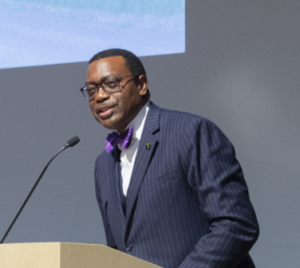The African Development Bank (AfDB) and the International Organization for Migration (IOM) has released a joint report designed to support practitioners and decision makers to turn migration into a force for development in Africa.
The report titled ‘Diaspora Engagement, Climate-Induced Migration and Skills Mobility: A Focus on Africa’ examines the impact of migration on human development and poverty reduction and provides insights to leverage the potential of the African diaspora, build climate resilience, and harness skills mobility to drive Africa’s development trajectory.
A news report from Africa Press Organization (APO) Group distributed on behalf of the AfDB indicated that the key findings of the report showed that Diaspora engagement remained key in mitigating the impact of the “brain drain” and facilitates the flow of skills and knowledge from different parts of the world to the African continent, and vice versa.
In addition, the report found that African diaspora communities were crucial in addressing climate-related issues ranging from sudden onset challenges to adaptation and disaster risk reduction when their technical expertise is leveraged, and skills mobility facilitated.
This is even as the report further revealed that partnerships and collaboration remained important to mainstream diaspora engagement into the policy and programmatic responses to climate change and skills mobility at the national, regional, and continental levels.
The report’s findings derived from a two-year long collaboration between both organizations, as well as members of the multilateral development bank’s platform on Economic Migration and Forced Displacement (EMFD).
The preface of the report signed by the AfDB President, Dr. Akinwumi Adesina, and former Director General, International Organization for Migration, António Vitorino, partly reads: “The study meticulously illustrates that when well-managed, migration can be a powerful impetus for human development and poverty reduction. It can foster sustainable and equitable economies by introducing innovation, skills, knowledge, and remittances between the countries of origin and destination.”






